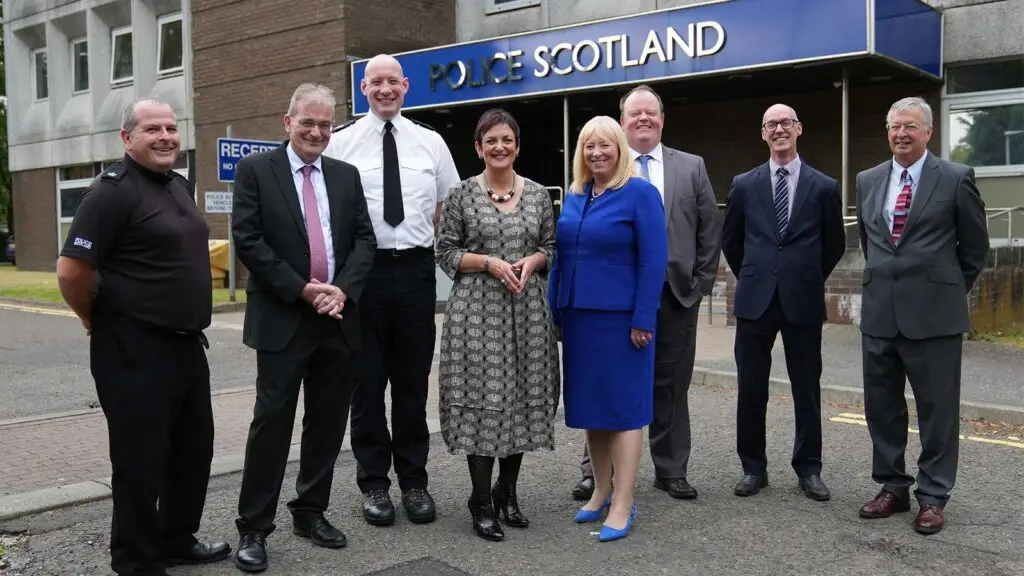The Scottish Government is launching a groundbreaking initiative to improve how digital evidence is shared nationwide. The project, known as the Digital Evidence Sharing Capability (DESC), aims to accelerate court cases and reduce the necessity for victims and witnesses to be physically present in court.
With an investment of £33 million over ten years, the DESC programme is set to revolutionise evidence management in Scotland. This initiative promises to make the justice system more efficient by creating a secure and unified platform for handling digital evidence.
Pilot Programme Success: Dundee as the Testing Ground
The DESC initiative was initially piloted in Dundee between January 2023 and April 2024. During this period, around 19,500 pieces of evidence were processed through the system. This trial phase demonstrated the system’s capability to streamline evidence management, freeing up nearly 500 hours of police officers’ time.
The success in Dundee has paved the way for the expansion of DESC to Tayside and Forth Valley. A phased national roll-out is planned, with completion expected by Autumn 2025. This expansion aims to bring the benefits of improved evidence handling to more regions, enhancing the overall efficiency of the justice system.
Advantages of the Digital Evidence Sharing Capability
The DESC system offers numerous advantages, including the secure collection, storage, processing, and management of digital evidence. It supports various kinds of evidence, such as CCTV footage, photographs, data from computers, and mobile devices.
Furthermore, the system is expected to reduce delays in the judicial process. By enabling quicker access to digital evidence, DESC helps in faster resolution of cases, benefiting all parties involved, from victims to judicial officers.
Expert Opinions on the DESC Implementation
Justice Secretary Angela Constance described DESC as a transformational programme. Constance highlighted that the system benefits not just victims, but also police officers, prosecutors, defence lawyers, and judges.
Assistant Chief Constable Tim Mairs also praised the DESC system. Mairs stressed that it allows officers to share digital evidence securely and efficiently, saving considerable time and supporting victims and witnesses in achieving quicker justice outcomes.
Future Expansion and Applications of DESC
Initially, DESC is handling evidence related to Summary cases. Over time, it will expand to include Solemn cases, broadening its scope and impact. This will enhance the justice system’s ability to manage various types of cases efficiently.
In the future, DESC will also support the introduction of body-worn video for frontline police officers. This capability will further modernise the collection and management of digital evidence, paving the way for additional advances in the justice system.
Efficiency and Time Savings Through DESC
One of the key benefits of DESC is its ability to free up police officers’ time. The pilot in Dundee showed significant time savings, which can now be redirected towards frontline policing and other important activities.
The use of DESC means that police officers no longer need to transfer digital evidence to USB sticks or discs. Instead, evidence can be securely shared through DESC, reducing the chances of data loss and speeding up the judicial process.
Wider Impact on the Criminal Justice System
The DESC system is expected to bring about significant changes in how the criminal justice system operates. By streamlining evidence management, DESC will help in reducing the inconvenience faced by victims and witnesses.
Additionally, the system will contribute to a more modernised and efficient judicial process, enhancing Scotland’s position as a leader in judicial technology innovation. The nationwide roll-out of DESC is a crucial step towards achieving these goals.
Continued Collaboration for DESC Success
Andrew Laing of the Crown Office and Procurator Fiscal Service emphasised the importance of collaboration for DESC’s success. He pointed out that working together with Police Scotland, the Scottish Courts and Tribunals Service, and other partners is key to transforming the justice system.
Laing noted that DESC allows for better and quicker decision-making. With digital evidence readily available, prosecutors can share information with the defence more efficiently, leading to faster case resolutions.
Expanding Capabilities of DESC
DESC will initially handle Summary cases, but its scope will expand to Solemn cases later, enhancing its impact on the justice system. This expansion will help in managing various types of cases more efficiently.
The implementation of DESC marks a significant step forward in modernising Scotland’s judicial system. It promises quicker resolutions and less inconvenience for victims and witnesses.
As DESC continues to roll out nationwide, it is set to bring about transformative changes in how digital evidence is managed and shared. This initiative underscores Scotland’s commitment to leveraging technology for improved justice outcomes.

